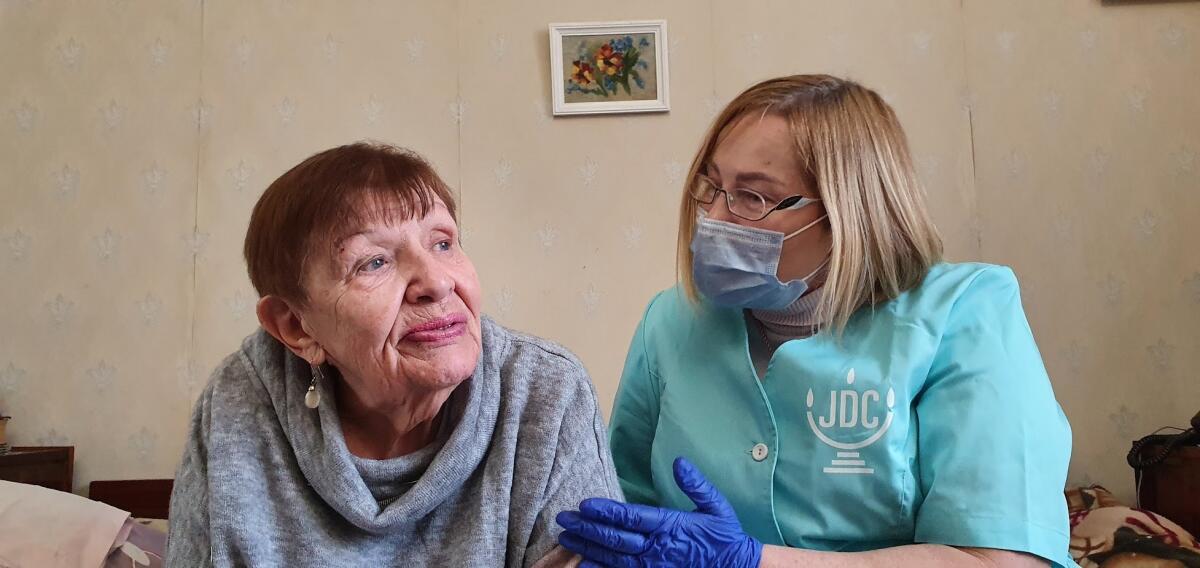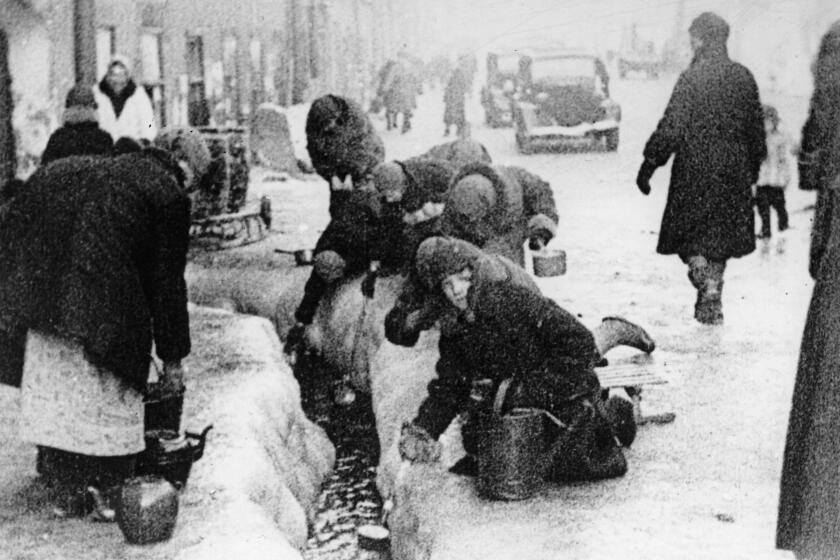Germany to give $720 million more to Holocaust survivors around the world

- Share via
BERLIN — The organization that handles claims on behalf of Jews who suffered under the Nazis said Wednesday that Germany has agreed to extend another $720 million to provide home care and support services for frail and vulnerable Holocaust survivors.
The New York-based Conference on Jewish Material Claims Against Germany, also referred to as the Claims Conference, said the money would be distributed to more than 300 social welfare organizations globally.
“We are proud to announce this significant allocation at a time when these funds are critical, due to the age, poverty and increasing disability of our waning survivor population,” said Gideon Taylor, the organization’s president.
“We know these funds provide vital support during these difficult times,” he added.
The additional funds constitute the largest amount ever allocated for the Claims Conference for welfare services in a single year, the organization said in a statement. It estimates that the funds will pay for services for about 120,000 impoverished Holocaust survivors.
Since 1952, the German government has paid about $90 billion to individuals for suffering and losses resulting from their persecution by the Nazis.
Germany agrees to extend compensation to Jews who endured the World War II siege of Leningrad, Russia, and to two other groups of Holocaust survivors.
The Claims Conference last year disbursed $653 million in grants to hundreds of social service agencies worldwide.
The funds are distributed to social welfare organizations in regions where significant numbers of survivors live, with the aim of ensuring that vital services such as home care, medical care, emergency assistance and food are available for Holocaust survivors.
“Survivors will be supported wherever they live, whether war-torn areas or conflict zones, and no matter the obstacle,” said Greg Schneider, the Claims Conference’s executive vice president.
With the end of World War II now more than 76 years ago, all living Holocaust survivors are elderly, and many suffer from numerous medical issues because they were deprived of proper nutrition when they were young.
Many also live isolated, having lost their families in the war. Many Holocaust survivors came out of the war with nothing and are still impoverished today.
More to Read
Sign up for Essential California
The most important California stories and recommendations in your inbox every morning.
You may occasionally receive promotional content from the Los Angeles Times.














